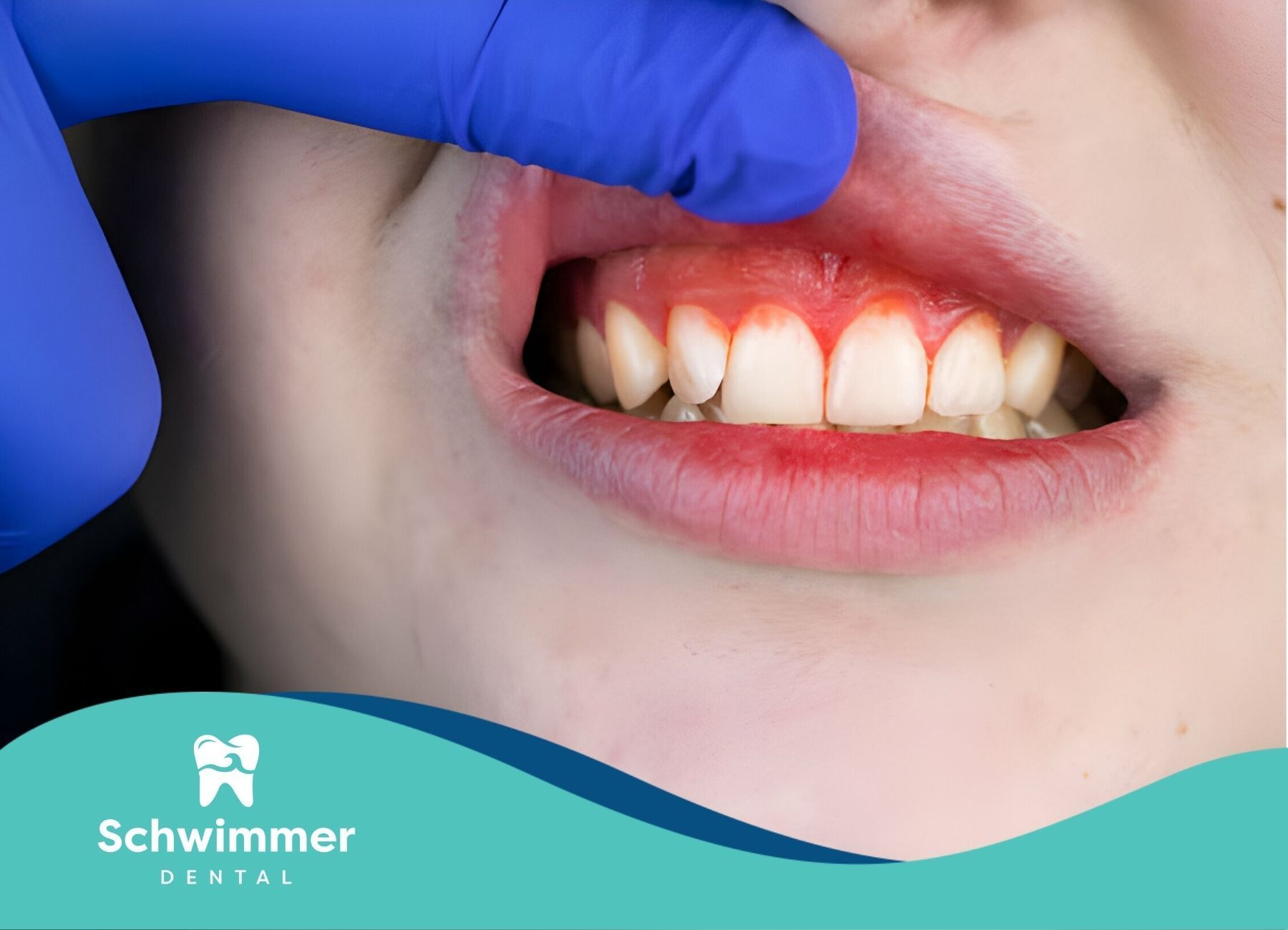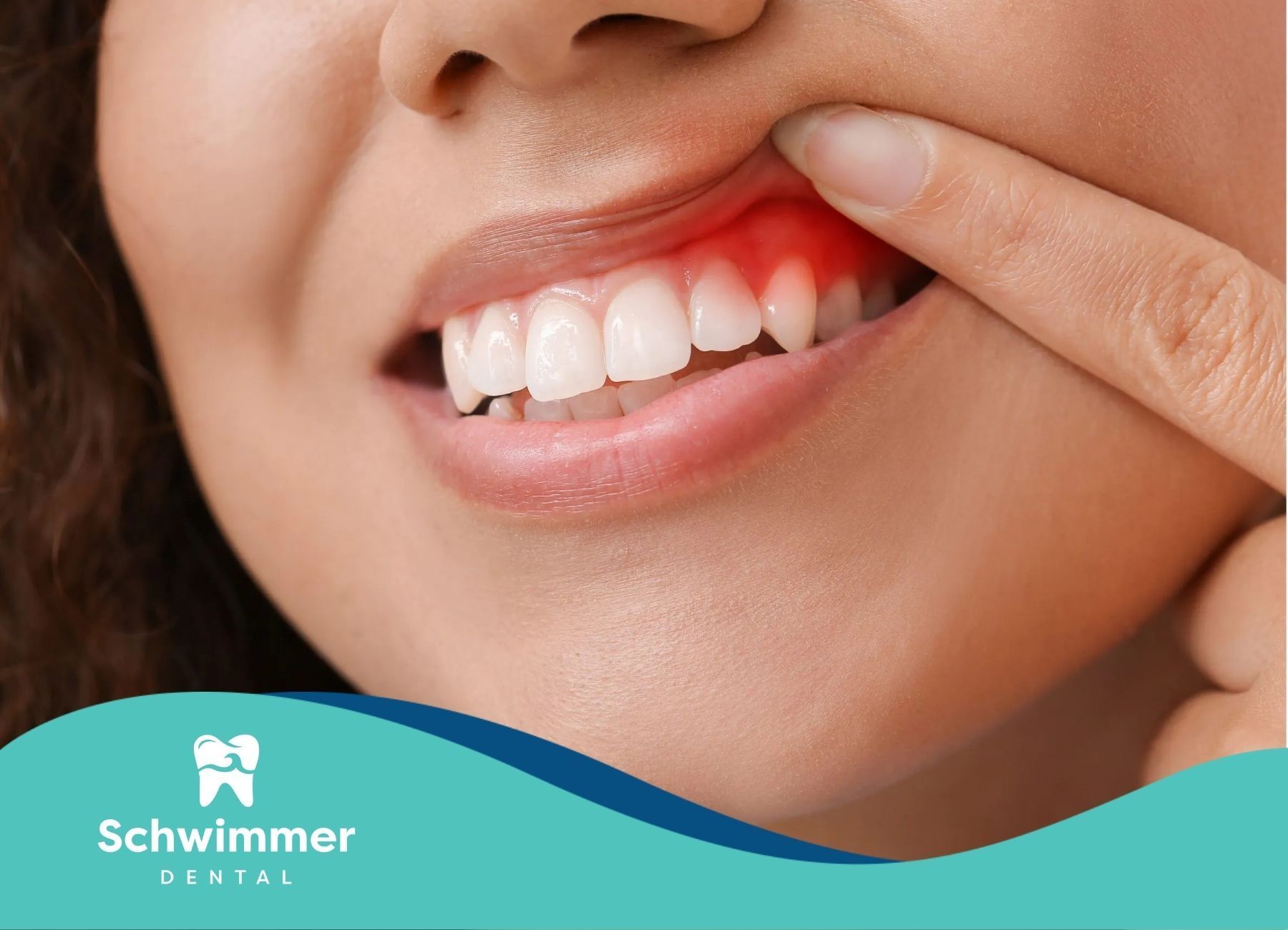Have an appointment? Complete the Intake Form
Symptoms of a Jaw Infection After Root Canal: What to Watch Out For
A root canal is one of the most effective ways to save a damaged or infected tooth. However, while the procedure is meant to eliminate infection and pain, complications can sometimes arise. One of the most serious complications is a jaw infection that develops after a root canal.
In most cases, mild discomfort and sensitivity after a root canal are normal. But if pain, swelling, or other symptoms persist or worsen, it could indicate an infection that requires immediate attention. A jaw infection can spread quickly if left untreated, potentially leading to more severe health problems.
In this article, I will cover everything you need to know about the symptoms of a jaw infection after a root canal, why it happens, how it is treated, and what you can do to prevent it.
What Happens During a Root Canal?
To understand why infections sometimes develop after a root canal, it's essential to know what the procedure involves.
A root canal is performed to treat pulp infections inside a tooth. The pulp contains nerves and blood vessels, and when it becomes infected due to deep decay, cracks, or trauma, it can cause severe pain.
Steps of a Root Canal Procedure:
1. Numbing the Area
The dentist administers local anesthesia to ensure the patient does not feel pain during the procedure.
2. Accessing the Pulp
A small opening is made in the tooth to access the infected or damaged pulp.
3. Cleaning and Shaping the Canals
The infected pulp is removed, and the canals are cleaned, disinfected, and shaped to prepare for filling.
4. Filling the Canals
A biocompatible material, usually gutta-percha, is placed in the canals to seal them and prevent reinfection.
5. Sealing and Restoring the Tooth
A temporary or permanent filling is placed, followed by a crown to protect the tooth and restore its function.
Although the root canal procedure effectively removes infection and prevents reinfection, complications can arise, leading to a jaw infection in some cases.
How Can a Jaw Infection Develop After a Root Canal?
Even though a root canal is designed to eliminate bacteria, there are several ways an infection can still occur:
Bacteria Left Behind in the Tooth
Some root canals have complex structures, making it difficult to remove all bacteria completely. If bacteria remain inside the treated tooth, the infection may persist and spread to the jawbone.
A Cracked or Fractured Tooth
If the tooth cracks after a root canal, bacteria can re-enter, leading to reinfection. A crack might not always be visible, making it a hidden cause of infection.
A Poorly Sealed or Loose Filling/Crown
If the filling or crown does not properly seal the tooth, bacteria can penetrate and cause reinfection. This is why getting a crown promptly is crucial after a root canal.
Delayed Healing Due to a Weakened Immune System
People with diabetes, autoimmune conditions, or those taking immunosuppressants may heal more slowly and have a higher risk of developing an infection.
Spread of Infection from Surrounding Areas
If there is an untreated gum infection or periodontal disease near the treated tooth, bacteria can spread into the jaw.
Warning Signs: Symptoms of a Jaw Infection After a Root Canal
A mild amount of pain and discomfort is expected after a root canal, but if the following symptoms persist or worsen, it could indicate a serious infection:
Severe or Worsening Pain
- Some soreness is normal, but sharp, throbbing, or persistent pain beyond the first few days could be a sign of infection.
- Pain that worsens instead of improving is a red flag.
Swelling in the Jaw or Face
- Significant swelling in the gums, jaw, or cheek is a common symptom of infection.
- Swelling that spreads or causes difficulty breathing should be treated as an emergency.
Fever or Chills
- A fever above 100.4°F (38°C) could indicate your body is fighting an infection.
- Chills and fatigue may accompany the fever.
Pus or Foul-Tasting Drainage
- If pus leaks from the gums near the treated tooth, it’s a sign of an abscess.
- A persistent bad taste or foul odor in the mouth can also indicate an infection.
Tender or Swollen Lymph Nodes
- Lymph nodes in the neck or under the jaw may become painful or swollen if the infection spreads.
Difficulty Chewing or Opening the Mouth
- If jaw movement is painful or restricted, the infection may be affecting the surrounding muscles and tissues.
Gum Redness and Inflammation
- Inflamed, bright red, or tender gums near the treated tooth may indicate an active infection.
If any of these symptoms persist for more than a few days, or if they worsen suddenly, seeking immediate dental care is crucial.
How is a Jaw Infection After Root Canal Treated?
Treatment depends on the severity of the infection:
Antibiotics to Fight the Infection
- Mild infections are treated with oral antibiotics.
- Severe cases may require IV antibiotics if the infection spreads.
Draining the Infection
- If there is an abscess (pocket of pus), your dentist may need to drain it to remove bacteria.
Root Canal Retreatment
- If bacteria remain inside the tooth, the root canal may need to be redone to remove any remaining infection.
Tooth Extraction (Last Resort)
- If the infection has severely damaged the tooth or spread into the jawbone, removing the tooth may be necessary.
Pain Management and Home Care
- Over-the-counter pain relievers can help with discomfort.
- Warm saltwater rinses can reduce swelling and bacteria.
- A soft food diet may be recommended until symptoms improve.
How to Prevent a Jaw Infection After a Root Canal
Follow Your Dentist’s Post-Treatment Instructions
- Take prescribed antibiotics as directed.
- Avoid chewing on the treated tooth until the final restoration is placed.
Get Your Permanent Crown Without Delay
- A permanent crown or filling is essential to seal the tooth and prevent bacteria from re-entering.
Maintain Excellent Oral Hygiene
- Brush twice daily with fluoride toothpaste.
- Floss carefully around the treated tooth.
Monitor for Any Unusual Symptoms
- Keep an eye on pain, swelling, or discharge, and report anything unusual to your dentist immediately.
Conclusion: Don’t Ignore the Warning Signs
A root canal should relieve pain and prevent infection, but in some cases, bacteria can persist or return, leading to a jaw infection. If you experience persistent pain, swelling, pus, fever, or difficulty chewing after a root canal, don’t ignore these symptoms—they could indicate a serious infection that requires immediate treatment.
At Schwimmer Dental, we specialize in advanced root canal treatments and post-treatment care to ensure optimal healing. If you're experiencing unusual symptoms after a root canal, contact Schwimmer Dental right away to protect your oral health and prevent further complications.
FAQs
How do I know if I have a jaw infection after a root canal?
Symptoms include persistent pain, swelling, fever, pus discharge, and difficulty opening your mouth. If you notice these signs, contact your dentist immediately.
Can a jaw infection after a root canal go away on its own?
No, infections typically require treatment with antibiotics, drainage, or additional dental procedures. Leaving an infection untreated can lead to severe complications.
What should I do if I suspect an infection after my root canal?
Call your dentist as soon as possible. Early treatment can prevent the infection from spreading and reduce the need for more invasive procedures.
Sources:
- https://pmc.ncbi.nlm.nih.gov/articles/PMC10298853/
- https://www.mcgill.ca/oss/article/health-and-nutrition/defence-maligned-root-canal
- https://www.aae.org/patients/root-canal-treatment/
- https://www.mouthhealthy.org/all-topics-a-z/root-canals
- https://penndentalmedicine.org/blog/busting-root-canal-myths/
Need Assistance? We’re Here to Help
We are dedicated to enhancing your dental health and well-being.
We provide personalized dental care solutions for a confident, healthy smile.
Contact us today for Professional Dental Care.

Our caring staff will help you feel relaxed and comfortable in our state of the art office. We respect your time and pledge to deliver prompt service, backed by the latest knowledge, techniques, and technology.
Email: Office@schwimmerdental.com
Tel: (848) 294-2385
Fax: (732) 899-3347
Address: 1115 Arnold Ave,
Point Pleasant, NJ, 08742
Schwimmer Dental – Website by CWS


